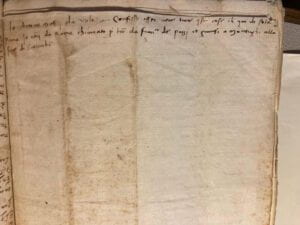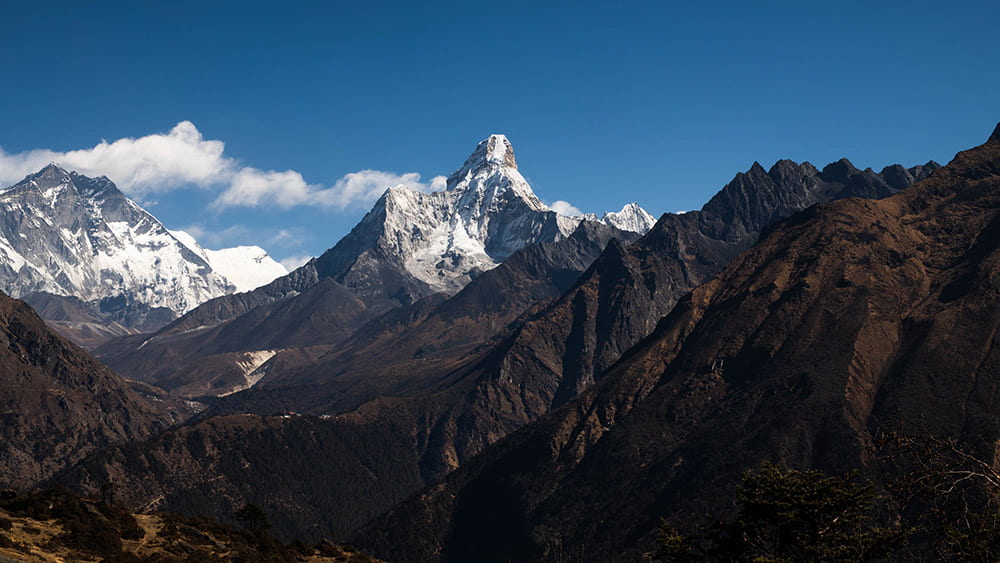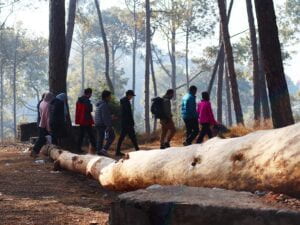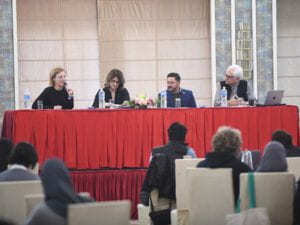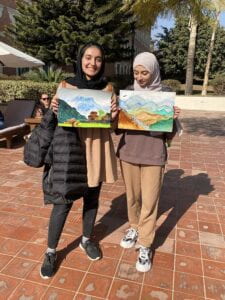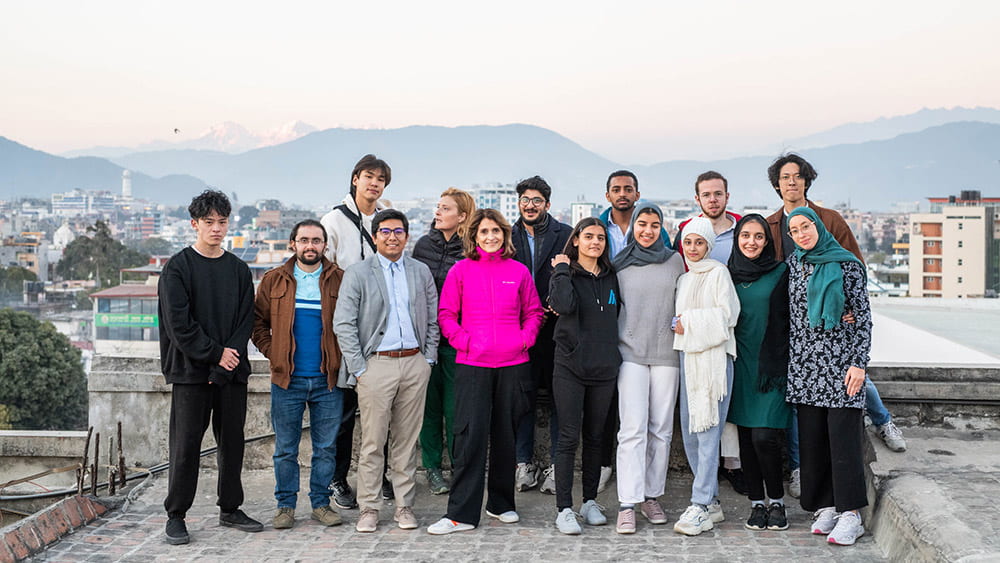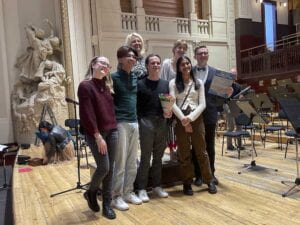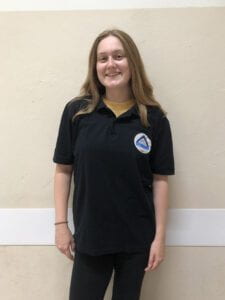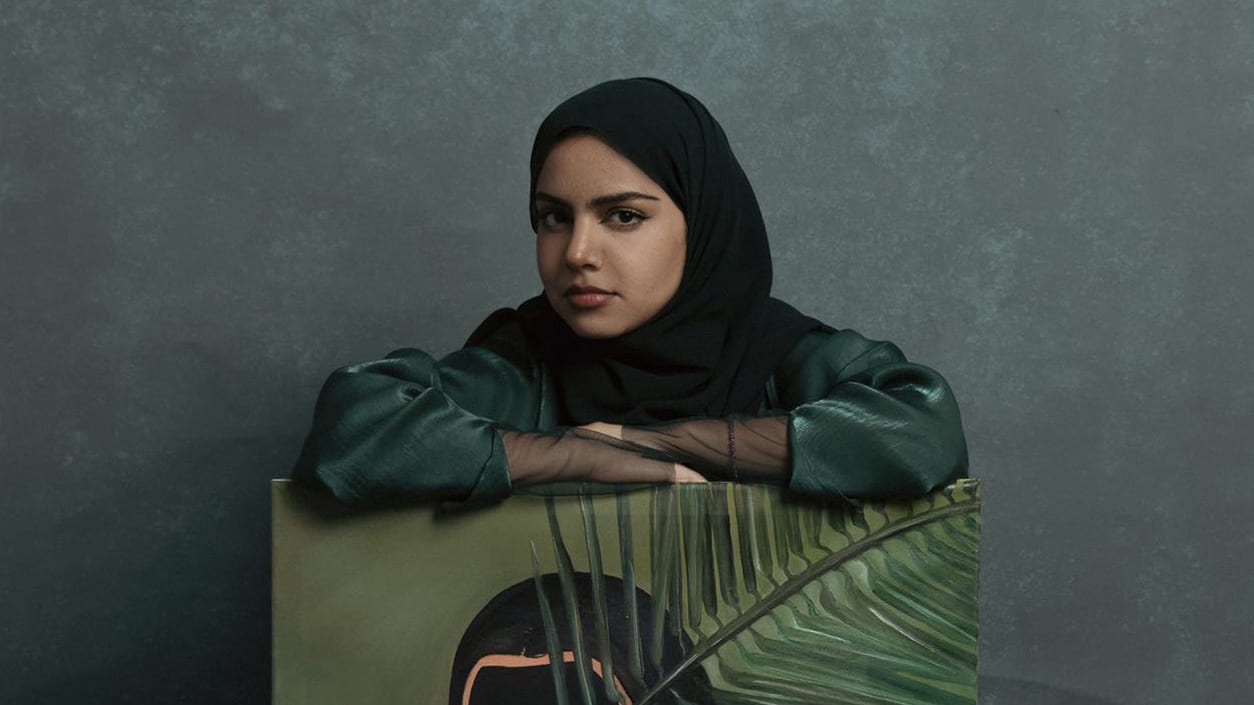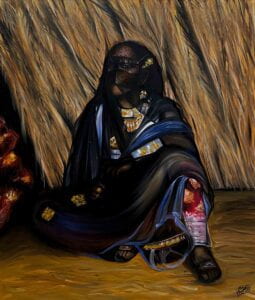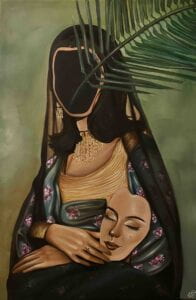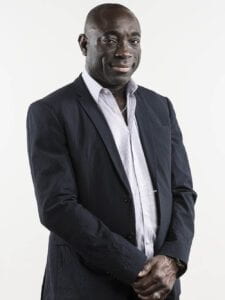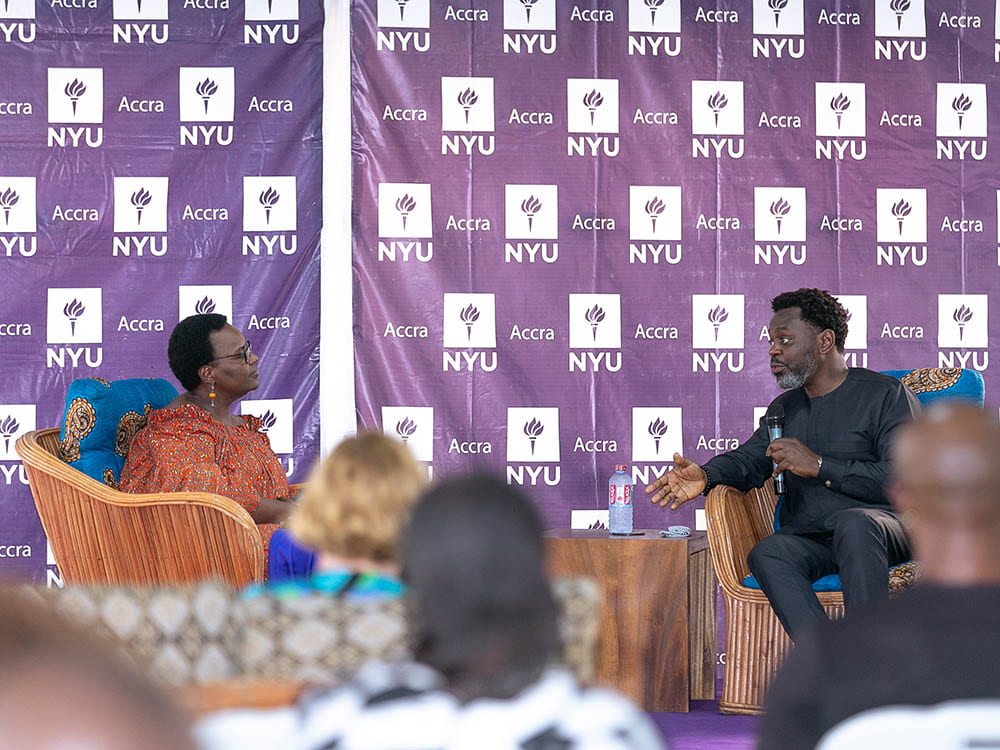A newly found signed confession alters what historians thought they knew about one of history’s greatest conspiracies
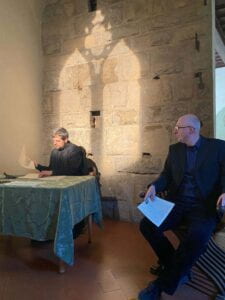
Marcello Simonetta, right, narrates a reenactment of the Pazzi Conspiracy at Florence’s Palazzo Vecchio on April 26, 2023, the 500-year anniversary of the event.
Had Antonio Maffei da Volterra successfully assassinated Lorenzo de’ Medici, the course of Italian history would have been altered immensely. The roots of the infamous Pazzi conspiracy to oust the Medici family as rulers of Florence ran deep—everyone from the pope to the king of Naples had a part in it. The failed conspiracy took place over 500 years ago this spring, and today, few people know more about it than NYU Florence instructor Marcello Simonetta. So when he uncovered a confession letter from Antonio Maffei earlier this year, unearthing details never known before of the attempted assassination, Simonetta was astounded.
“I’ve been around these materials for a long time. I know the story quite well. I even wrote a book about it,” says Simonetta. “This confession wasn’t supposed to exist, but it does, and it’s amazing.” Simonetta laughs when he says this, but then notes that distrust is the most important part of being a successful historian. He explains that you have to believe there is more to every story—that the historians who came before you didn’t finish the job and left something more to discover—even when you don’t know what that something is. And in this case, it is a confession letter written and signed by Antonio Maffei shortly before his death.
“It’s the last thing he wrote, because soon after writing the confession, he died,” says Simonetta, who found the confession at the Archivio di Stato di Firenze in a file of poems, wills, and other completely unrelated documents. “Archives are the treasures of our past. If you look close enough, you’ll find things that are unbelievable but true.”
In the confession Maffei shares a timeline for the planned assassination of the Medici brothers (Lorenzo, who was injured, and Guiliano, who did not survive). Unaware of his specific role in the assassination until the day before it happened, he wrote that he arrived in Florence months before April 26, 1478—the day the plot was to be enacted. This information contradicts what writer and philosopher Niccolò Machiavelli wrote in Florentine Histories, which is considered one of the most accurate accounts of the conspiracy. But just the existence of the confession—that Maffei even had time to write it—debunks the idea that he was beaten and hanged immediately after the attack.
“There are a lot of details about the preparation of the conspiracy, which we didn’t know before,” explains Simonetta. “But the bottom line is we had no idea that Antonio arrived seven months ahead of time. These are all incredible details that make it very real and very human. The failure of the conspiracy is astounding, but also the conspiracy itself, as Machiavelli points out among other things, is extraordinary.”
Simonetta is an expert on Machiavelli and teaches a class about him at NYU Florence. As a matter of fact, Simonetta made the discovery at the same time the class was reading Machiavelli’s On Conspiracies, specifically the section about the Pazzi conspiracy.
“The students had read the materials, but they didn’t know there was this new element that had just surfaced from the dust of the past, so I used it in the class,” Simonetta notes. “When I can, I love to use firsthand documents because it makes history so much more alive. And that’s what history is all about. It’s about imagination; without imagination it’s just data. It’s raw data, so who cares? But when history becomes living history, which is a pun—lethal history more than living in this case—it comes alive.”
Simonetta says that having the opportunity to bring history to life for his students has been one of his favorite parts about teaching at NYU Florence. Teaching in the city where these events took place, he adds, brings a dynamic to the classroom experience that is unobtainable anywhere else in the world.
“I’ve taught classes about Machiavelli in the United States, but it’s not the same as going to the Basilica di Santa Croce and seeing his tomb. Or going to the villa where he wrote The Prince,” Simonetta concludes. “It becomes so real: you can touch it, you can feel it exactly as it is. So being here, in Florence, is an enormous plus for my students and for me.”
Written by Kelly McHugh-Stewart
